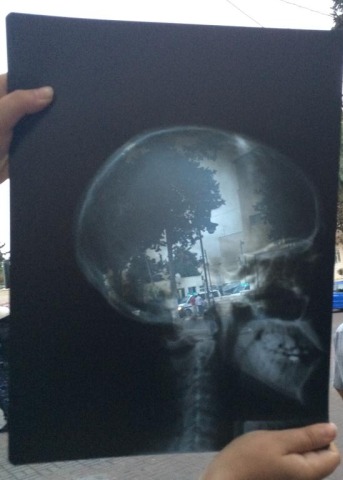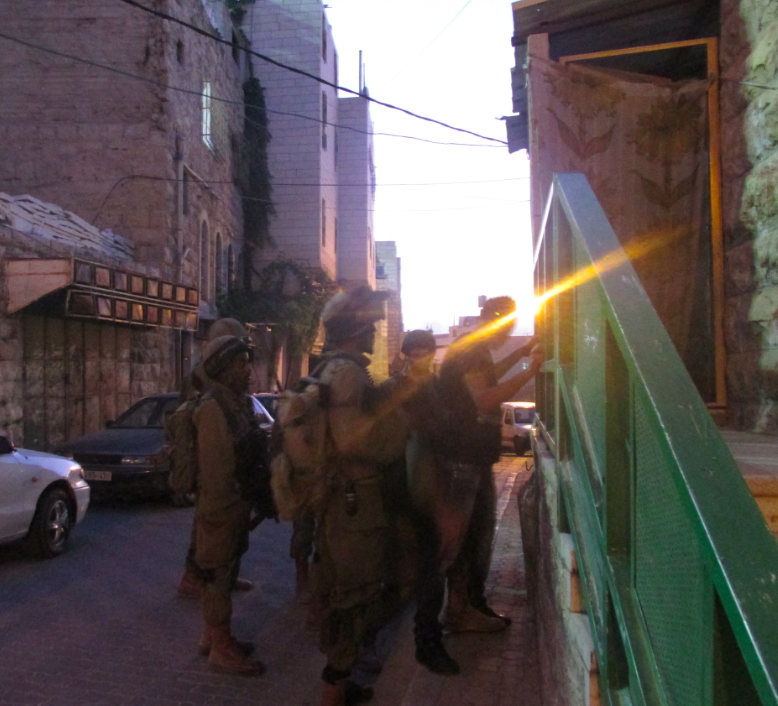Tag: Night Raid
-
Eleven houses raided in Hares as collective punishment continues
23rd June 2014 | International Solidarity Movement, Nablus team | Hares, Occupied Palestine During the early hours of Saturday 21st June, before dawn, the Israeli army invaded the town of Hares and raided 11 houses. The house raids were generally violent and property was damaged. During the raid, Jamil Ali Jaber (60-years-old) – whose house wasn’t…
-
One Palestinian killed and over 25 injured as Israeli military invade Ramallah
22nd June 2014 | International Solidarity Movement| Ramallah, Occupied Palestine In the early hours of the morning, the Israeli military invaded the Ramallah district of the West Bank; at least 25 people were injured, mostly from the many rubber-coated steel bullets fired by the soldiers. One youth was shot with live ammunition in the head. Mahmoud Atalla…
-
Collective punishment in Palestine
22nd June 2014 | International Solidarity Movement| Occupied Palestine On Thursday 12th of this month, three settler youth disappeared while hitchhiking in the Hebron area of the West Bank. No Palestinian group or organisation has taken responsibility for the disappearance. 15-year-old Mohammad Dudeen was murdered in the early hours of Friday morning (20th) after he was…



